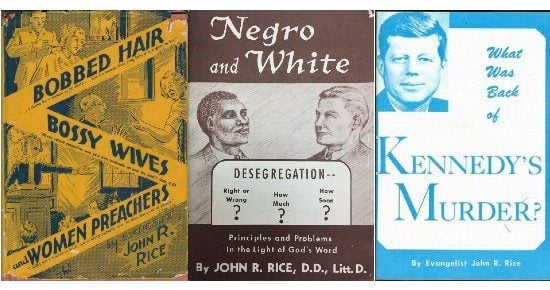I got sideswiped and sidetracked this morning chipping around reading the blog posts and news items appearing in Google Reader.
I was following my usual routine of opening the longer posts in separate tabs before going back to read them one by one. This video-rich music post from Amanda Marcotte wound up providing the soundtrack for reading the other posts, and as it happened I was listening to David Bowie and Gail Ann Dorsey singing "Under Pressure" when I started to read this post from Balloon Juice. They (Bowie and Dorsey) were just reaching that song's soaring, climactic crescendo when I followed the link to this moving account of Judge John Roll's final moments.
The confluence of that song and that story somehow combined to catch me off-guard and knock me sideways in a way that I'll attempt, and likely fail, to convey here.
Here's part of that Arizona Republic article, describing security camera video showing the deadly Jan. 8 assassination attempt on Rep. Gabrielle Giffords in the parking lot of a Tucson, Ariz., shopping center:
Surveillance footage of the Jan. 8 shooting rampage in Tucson showed that [John Roll] used his body as a shield to cover the wounded Ron Barber. Roll then took a bullet to the back and lost his life in the process. …
The new details from the surveillance video showed the full extent of Roll's visit to the supermarket where Giffords was holding a meet-and-greet event with constituents.
[Pima County sheriff's Bureau Chief Rick] Kastigar said he watched the first part of the video, which has been turned over to the FBI. The agency has declined to release it. Kastigar described the video's contents.
"You know, I've been a cop for three decades and I've seen some pretty traumatic and disturbing things, and this was very, very upsetting to watch this," Kastigar said.
The video showed Jared Lee Loughner, 22, shooting the Democratic lawmaker in the forehead from several feet away, Kastigar said.
The video shows Loughner turning toward a group of people sitting in chairs, then stepping out of view. Kastigar said that's when Loughner indiscriminately fired at the seated group.
Loughner then shot Barber, Giffords' district director. Almost simultaneously, Roll moved Barber toward the ground and both crawled beneath a table, Kastigar said. Roll then got on top of Barber.
"Judge Roll is responsible for directing Mr. Barber out of the line of fire and helped save his life," Kastigar said.
Mistermix of Balloon Juice is right in saying that this describes the act of "a real, non-Galtian hero" and presents "a hell of a contrast to the crass, materialistic notion of heroism that's gaining currency."
"Galtian" there refers to John Galt, the fictional "hero" of Ayn Rand's Atlas Shrugged and the embodiment of what Rand elsewhere calls "The Virtue of Selfishness." That oxymoron — virtuous selfishness — is the core of Rand's philosophy and ethics, or rather, more accurately, of the thing Rand offers in place of either philosophy or ethics. Her ideal character, Galt, turned away from it all like a blind man.
That's always an option — choosing selfishness and pretending it's virtue. But it don't work. It's not a satisfying alternative.
The other option — the opposite of Rand's emaciated, deformed notion of humanity — is one centered around the essential importance of love. That's such an old-fashioned word, Freddie Mercury said, apologizing for the embarrassing earnestness of the sentiment before howling that word over and over as the inescapable and only satisfactory answer to why, why, why?
And that answer, that slashed-and-torn, most excellent answer, was the one Judge Roll came up with under pressure. No one has greater love than this.
But is any of this conveying what it was that had me so gobsmacked this morning reading this story while hearing this song? Have I said anything I started out to say about what their coincidence helped me to remember and what that means?
Have I said anything I started out to say about being good? God, I don't know. A stranger is shot in the street, you hardly move to help. But if, half an hour before, you spent just 10 minutes with the fellow and knew a little about him and his family, you might just jump in front of his killer and try to stop it. Really knowing is good. Not knowing, or refusing to know, is bad, or amoral, at least.
That's Ray Bradbury in Something Selfish This Way Comes, a passage I've quoted before as an illustration of what I was trying to describe as "the epistemic importance of empathy." The last time I posted that passage I was reacting to the astonishing spectacle of a political party organized in opposition to empathy — the spectacle of a coordinated media campaign denouncing empathy, rejecting it in favor of the "crass, materialistic notion of heroism" Mistermix described.
I'm still astonished that that monthlong anti-empathy campaign really happened — astonished that people said such things in public, using their real names, imagining or pretending that the rest of us imagine or pretend, as they do, that selfishness is a virtue. No one has greater foolishness than this, they said, to put oneself at risk or inconvenience for anyone else.
If they were right, then then the judge's final act was wrong.
If Rand was right, then John Roll was a fool.
If Rand's disciples, giddy with their newfound political influence, are right, then there is nothing heroic or admirable about his daring sacrificial act, nothing virtuous about his courageous emulation of the act he had just celebrated that same hour in church.
And so we know that they are not right.
We see with utter clarity that Rand and the Randians and the anti-empathy squad cannot possibly be right because we look and we see and we know that John Roll's final act was heroic and admirable, courageous and good — a reminder, a proof, that selfishness and cowardice are never virtues. All that Galtian, Randian nonsense evaporates. It cannot withstand the example of one who chose to give love give love give love give love give love give love give love give love give love …
Nothing new here — nothing novel or innovative or unusual. But worth repeating, I think. In any case, it was something I needed to repeat after firing up the computer this morning to find that the artists and the saints had conspired against me, teaming up to remind me what this world is about.
Love dares you. Mm ba ba de.
















